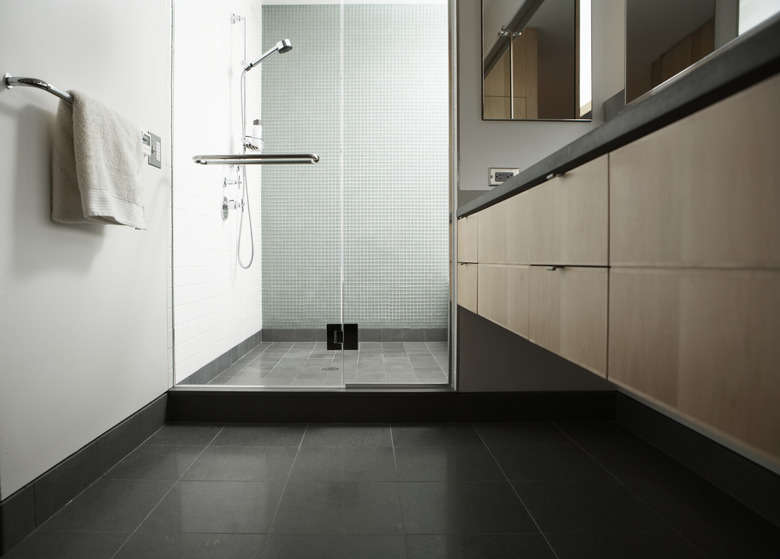The Best Shower Stall Materials
We may receive a commission on purchases made from links.
Is your shower due for an update? Comparing shower stall materials helps you plan your bathroom remodel based on your budget and style preferences. Acrylic, fiberglass, ceramic, and solid surface shower walls are common options, each with pros and cons.
Shower Panels, Prefab, and Tiles
Shower Panels, Prefab, and Tiles
Shower walls come in different types, each with pros and cons. Individual shower tiles allow for nearly endless custom design options for the shower walls, and they can increase the value of your home. However, it takes more work to keep the grout lines clean, it's more labor-intensive to install, and some tiles are very expensive.
Prefab showers are molded shower stalls that include the drain pan and walls, often with shelves, soap holders, and other features molded into them. You can also get a prefab tub and shower combo. These options have minimal seams, are easy to install, and are low maintenance. Some of the cons include limited design options, shower size limitations, and not as much value for your home.
Another option is to use shower panels, which just cover the wall. These kits or individual panels don't include the drain pan or tub. The wall panels go over existing wall boards or directly on the studs depending on the type and the current setup. They come in a variety of designs, and the full-wall sheets make them easier to clean, but they can be limited, and they don't create an exact replica of tile or other wall coverings.
Acrylic Shower Walls
Acrylic Shower Walls
Acrylic comes in sheets to cover your shower walls with a nonporous waterproof covering. You can choose from a variety of colors and textures to customize the look with many options replicating the tiled look without grout lines that can mold or crack. Acrylic shower walls also resist mold, scratches, stains, and chips, which helps them last, and they're easy to clean with a nonabrasive sponge or soft cloth and mild soap, making them low maintenance. Acrylic is one of the most affordable shower wall options, making it ideal if you're on a budget.
Fiberglass Shower Walls
Fiberglass Shower Walls
Another cost-effective shower wall option is fiberglass, which is molded into a variety of designs. Like acrylic, fiberglass comes in panels to eliminate seams that can leak and grout lines that get dirty. Fiberglass isn't quite as durable as acrylic in some cases. Excessive moisture can damage fiberglass, and it can be susceptible to scratching and fading.
Ceramic Tile Shower Walls
Ceramic Tile Shower Walls
If you like the look of individual tiles, ceramic is a durable option that comes in a wide range of prices. Ceramic resists staining, and you can give it rigorous scrubbing to clean it without damage. You can get creative with a ceramic tile shower installation since you can get tiles in a variety of shapes, colors, and designs, and you can combine different tiles to make creative patterns.
Ceramic tiles are time-consuming to install and require specific installation steps to ensure they're installed correctly. You'll also need to clean the grout lines regularly to keep them from becoming discolored or growing mold.
Solid Surface Shower Walls
Solid Surface Shower Walls
Solid surface shower walls are made of nonporous materials, typically including resin and fillers along with pigment to create the desired colors. They're seamless and can be made to look like different types of materials. Solid shower walls are often custom-made to fit your shower perfectly, and they're faster to install than individual tiles. Like fiberglass and acrylic, they're easy to clean and require little maintenance.
